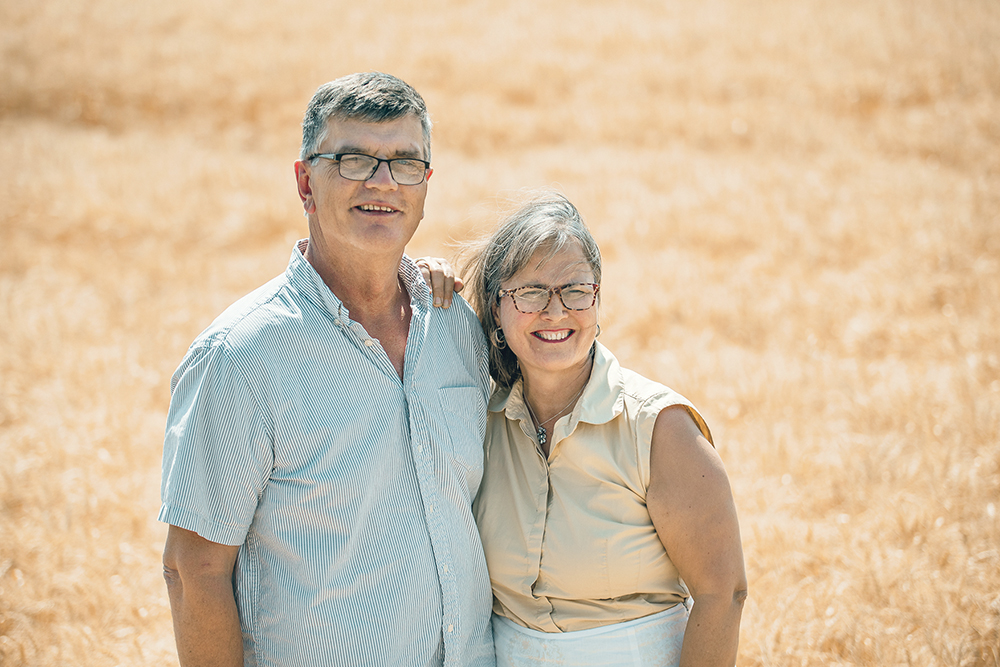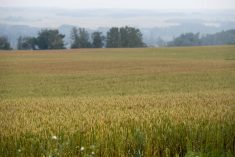The tables have turned for Elaine Froese. Today, she finds herself on the other side when it comes to discussions about farm retirement.
Over the years, the farm family coach helped thousands of people manage farm transitions and develop succession plans.
Now Froese and her husband, Wes, who are both in their mid-60s, are stepping back from day-to-day operation of their Boissevain, Man., farm but in a way that enables them to stay involved.
“Neither of us are going to retire but we will reinvent our role,” she said.
Read Also

Feds propose overhaul of chronic wasting disease control program
Chronic Wasting disease control program getting updated by Canadian Food Inspection Agency with feedback encouraged from producers.
She has approached it by asking what gives purpose to her life.
“I’m a farm family transition coach and I’m building a team of coaches to replicate my work. So I have a succession plan going on right now with my business. I intend to keep practicing for quite a while yet.”
On the other hand, Wes has decided he wants to control his participation in any farm work.
“He has what I call a collaborative decision-making style with my son, who’s our successor in the seed business and farm. He is taking on the role of what I would call compassionate mentor,” she said.
Effective communication is critical for a successful transition, Froese added.
“I’m sharing knowledge around farm family coaching and my husband’s sharing knowledge around management of the farm.”
She said farmers need to be clear about the roles they are leaving and the new ones they want to adopt.
“A lot of farmers as they age want to step away from being the main managers, but unfortunately some of them don’t want to do that because they can’t give up control,” Froese said.
She recalled a young farmer who said the tipping point finally came after making his father aware that his failure to cede control was “crushing our dream to be the next generation on the farm.”
“Are you crushing the dreams of the next generation by refusing to let go of control?” said Froese.
Many farmers getting long in the tooth also want to keep learning while imparting their years of wisdom and experience so the next generation is successful.
“From a coaching perspective, people don’t let go of something unless they have something more exciting to move toward. For a lot of farmers as they age, they haven’t developed things beyond the farm lifestyle that engages them,” she said.
For some, it’s difficult to cede control, which can lead to fear of failure and mistrust of those taking over. Stepping away or retiring from farming is easier said than done.
“They have a strong sense that they need to do something, but they really are uncertain where to start,” said Pattie Durand, business adviser for transition at Farm Credit Canada, based in Humboldt, Sask.
“When I think about resistance to retirement and what might be holding people back, really the first question I would ask is ‘is it truly your goal to transition this farm to the next generation?’
“Because sometimes it’s not. Can you say ‘yes’ to that question, is kind of where it proceeds to dig into some of the issues around trying to make decisions for retirement or post farming,” said Durand.
Like Froese, Durand has invested hours sitting across the table from senior farmers, helping lead conversations to help them make the best decisions.
She said the primary goal is to understand that the role of senior farmers matters.
Durand said people do best when they have a reason to get out of bed in the morning. If their purpose and identity is threatened or removed, they naturally tend to resist.
“So a question I would ask them, ‘what will your purpose be if you aren’t the farm leader anymore? Is it going to be on farm? Is it going to be off farm?’ But digging into that and thinking about that, reflecting on that, is a really good place to start,” she said.
Many farmers have never experienced leisure time, so typical retirement activities such as fishing, golf or travel may not appeal. However, by the nature of their work, many have developed a wide variety of knowledge and skills that are transferrable.
“Naming those things that you really love can equip you to think about what other things you might do after you’re no longer actively leading the farm,” Durand said.
Identifying dislikes is equally important.
“Change is hard and it takes time, but role clarity is a gift for you and your family. If you can decide to spend some time on it, lo and behold it can become really exciting. And you do want to wrap up what you’re doing so you can go do these other things that you’ve discovered.
“As a farmer you have a long history of figuring things out and solving problems. This is no different, so keep trying. Don’t be vulnerable to that risk of just trying a couple things and giving up, because you would never have accepted that in your day-to-day business.”
There are several potential hazards to realize before heading into a partial or full retirement, advisers said.
Froese said many older farmers have not adequately prepared for transfer of their personal wealth.
“They haven’t navigated a way to take less income off the farm and perhaps taking income from another source or a combination thereof.
“Not having a financial planner is a huge pitfall. I think every farmer should have a financial planner to give him perspective on the transition of the wealth of the farm and the transition of personal wealth,” said Froese.
Added Durand: “Over half of the farms we sit down with do not have adequate savings to cover the cost of living for the rest of their life. So digging into those numbers and looking at what’s possible and looking what might need to change to make it possible is our number one conversation.”
Leaving too early and not adequately preparing the next generation to take over can also be risky. Froese describes that as procrastination.
“You always think that some day you’ll get around to doing a more intentional transfer of your wisdom, knowledge and experience, but unfortunately tragedy or other interruptions can totally disrupt that thing happening. … Sometimes the transition comes way earlier than expected and you’re not prepared for it because you didn’t have a plan for the transition of knowledge.”
Another issue involves not leaving early enough, which stems from the inability to cede control.
“You need to build trust in the relationship with each other to have collaborative decision making, and you need to create a culture of mutual respect so that both generations can continue to grow and learn,” Froese said.
















